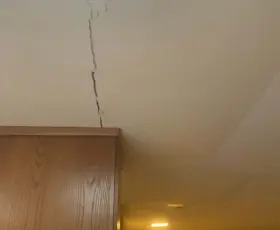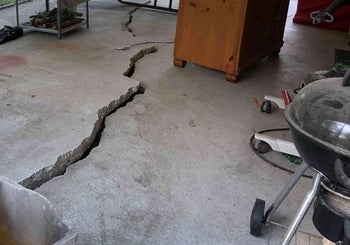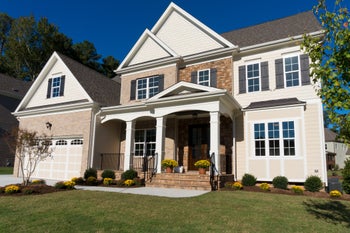How to Tell If Wall Cracks Are Foundation Problems
Table of Contents
1. Is Your Wall Crack Caused By A Foundation Problem?
2. What Causes Wall Cracks?
3. Types Of Wall Cracks
4. How To Know When A Wall Crack Is Serious
5. Trust Bay Area Underpinning for Wall Crack Solutions
Is Your Wall Crack Caused By A Foundation Problem?
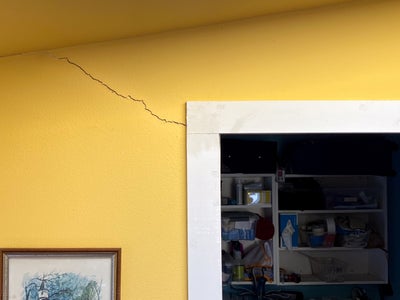
Wall cracks are usually a sign of foundation movement, but they don’t necessarily mean there’s structural damage. In other words, a foundation can move slightly and cause a wall crack, but that doesn’t mean there’s any structural damage requiring foundation repair.
You’re probably wondering if that wall crack you’re obsessing about is a sign of a foundation problem or, hopefully, something less serious. So, let’s start off with some good news…
What Causes Wall Cracks?
Of course, a wall crack can also be a sign of structural damage. This structural damage might have been caused by expansive soil, vibration, drainage problems, seismic activity, a severe wind storm, or something else. Cracks caused by structural damage are almost always more noticeable. Fortunately, a foundation repair professional can fix the problem that caused the crack.
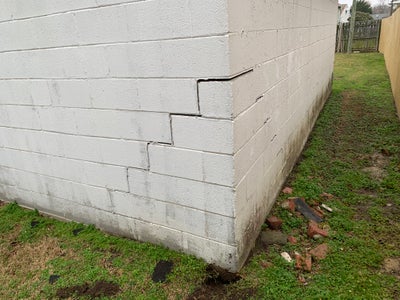
Types Of Wall Cracks
Wall cracks caused by foundation movement can appear on both interior and exterior walls. The types of wall cracks include:
- Drywall cracks
- Vertical wall cracks
- Horizontal wall cracks
- Stairstep cracks in brick
- Bowed wall with cracks
- Cracks in stucco
- A crack caused by a wall that’s separating from the ceiling or floor
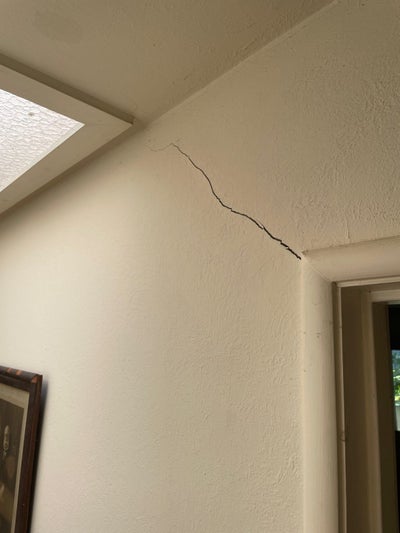
How To Know When A Wall Crack Is Serious
A wall crack is serious when it’s caused by structural damage. (Remember, you can have movement in a foundation that causes a wall crack, but doesn’t cause the kind of structural damage that requires a repair.) So, here are the cracks you need to look out for:
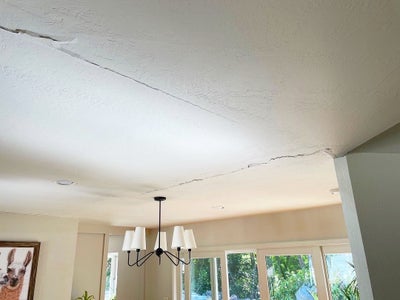
- A wall crack(s) that spans both the wall and the ceiling or floor. For example, a wall crack that goes across the ceiling and then down the wall. This is a sure sign of serious structural damage.
- Any horizontal wall crack that runs the length of a wall. If the wall is also bowed, it’s even more serious.
- Stairstep cracks in masonry. These cracks might be on the interior or exterior walls of the house.
- Your moldings are cracked or out of place. This happens because your wall and the ceiling and floor aren’t moving in sync.
- You have a wall crack that runs from the corner of either a door or a window up toward the ceiling. Sometimes, you will get hairline cracks in this area that usually aren’t anything to worry about. However, larger cracks in these areas are an indication of structural damage.
- You have a wall crack caused by a gap between the wall and the ceiling, or the wall and the floor. This is caused by significant movement in the foundation.
While tiny, hairline cracks usually aren’t serious, larger cracks (width or length) are almost always caused by the kind of structural damage that requires a foundation repair. However, there are always exceptions. If you see a wall crack that looks suspicious, contact a foundation repair professional for an inspection. It’s better to be safe than sorry. Read more about – DIY foundation repair.
Trust Bay Area Underpinning for Wall Crack Solutions
Not all wall cracks are caused by foundation movement. They can be caused by material defects, installation defects, high wind loads, and seismic activity. However, this doesn’t necessarily mean you have structural damage. A wall crack caused by structural damage is usually larger and will need to be evaluated by an experienced foundation repair professional who can then fix the problem that caused the wall crack.
If you have a wall crack in your home you’re unsure about, contact our team at Bay Area Underpinning today for a free inspection and repair estimate. We’ll recommend the best way to address wall cracks in your home, restoring your foundation and your peace of mind.
More Resources
Publish Date:
Last Modified Date:
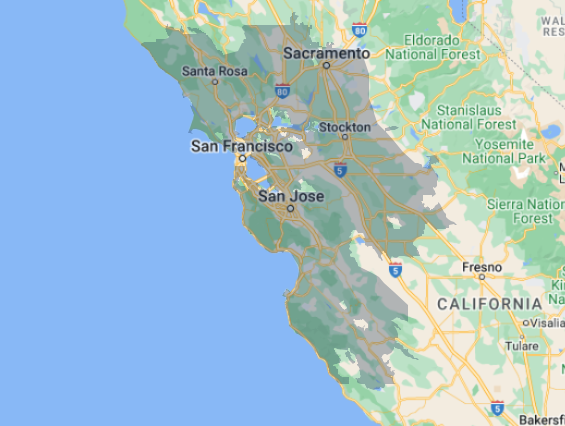
Our Locations
2333 Courage Dr. Suite C
Fairfield, CA 94533
1161 N Fair Oaks Ave
Sunnyvale, CA 94089

